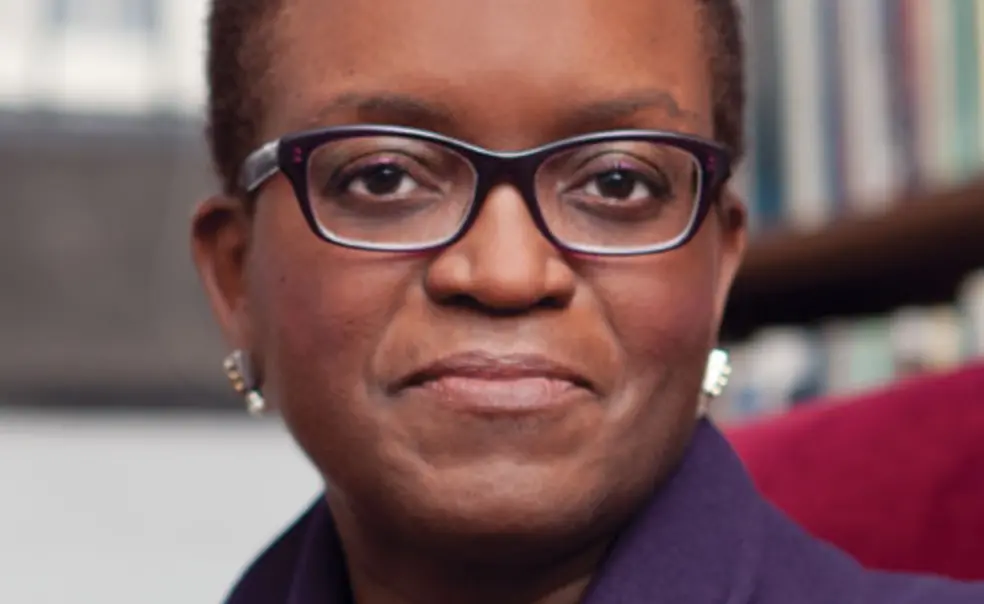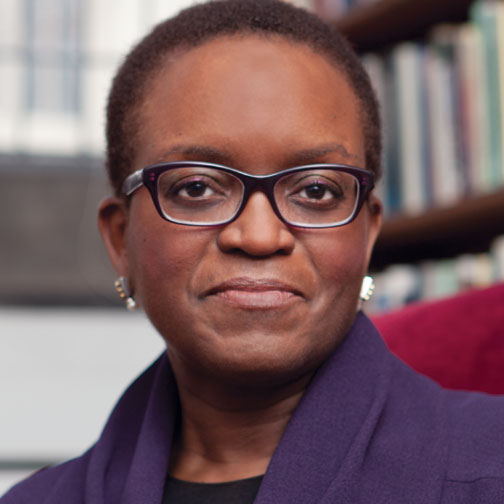Valerie Smith, on life as dean of the college
Last summer, Valerie Smith succeeded Nancy Weiss Malkiel as dean of the college. Smith, the Woodrow Wilson Professor of Literature and a 2009 recipient of the President’s Award for Distinguished Teaching, is the author of two books; a third book, about novelist Toni Morrison, will come out this year. In a conversation with PAW, she discussed the rewards and challenges of her new job and commented on Princeton’s policy of grade deflation, which was introduced in the 2004–05 school year. Under that policy, A-range grades are expected to account for less than 35 percent of grades given in undergraduate courses. Among students, the grading policy became one of the most controversial aspects of Malkiel’s tenure.
How is your first year going?
It’s going very well. This is a fascinating, rewarding, challenging job. The most rewarding parts have been working with different members of the University community — faculty, students, administrators, and staff — and discovering how deeply talented they are and how committed they are to the shared enterprise of teaching and learning.
Has the job been different than you thought it would be?
Yes, precisely because I hadn’t realized how deeply interconnected our policies and structures are. Here’s an example: We all recognize that advising plays an important role at Princeton. Our students have to choose their courses carefully in order to satisfy the general-education requirements and their departmental requirements, and to meet the challenges of junior independent work and the senior thesis. But I hadn’t fully realized how critical it is that advising in the residential colleges and advising in the departments complement each other.
How would you coordinate those two advising functions?
We’re working on two programs to strengthen advising. First, Senior Associate Dean of the College Claire Fowler and her team are creating a website for incoming students that will act as a portal to academic and campus resources. Incoming students have many questions about life at Princeton and how best to select their courses in the first year. This site will enable us to coordinate the information we provide to them.
Second, we’re piloting a program in several of the residential colleges that allows us to coordinate the guidance students receive from their residential-college advisers, the resident graduate students, and their peer academic advisers. While students certainly value the guidance they receive from their faculty advisers, they also turn to more advanced students for advice. We want to create advising communities in the residential colleges so our students will receive consistent, accurate information.
Are you committed to the grading policy — grade deflation — introduced by Dean Malkiel?
The grading policy was implemented to ensure greater consistency in grading across departments and to ensure that faculty give students an accurate assessment of the quality of their work. I support those fundamental principles. Over time that message has perhaps gotten lost. I’ve been working with the Faculty Committee on Grading and colleagues in the McGraw Center for Teaching and Learning to find ways of refocusing our attention on those assumptions. We’d also like to engage faculty and students in a broader conversation about evaluating and assessing student work.
Are the residential colleges filling the appropriate role?
The residential colleges are doing an outstanding job of providing intellectual and social communities where students live and study. They allow students to experience the University at a more intimate, manageable level. In addition, the colleges offer students opportunities to work collaboratively with others, to assume positions of leadership, and to learn outside the classroom. [Other administrators] and I work with the colleges to support new ideas for engaging juniors and seniors in the residential-college system. We also encourage initiatives for enhancing the role of faculty fellows, resident faculty, and resident graduate students in the colleges.
Has it been hard to leave the classroom?
I definitely miss it. In the future, I hope to teach one course a year. I enjoy the opportunities I have to meet with students, but I do miss the intense intellectual engagement of the classroom.
— Interview conducted and condensed by Mark F. Bernstein ’83













No responses yet